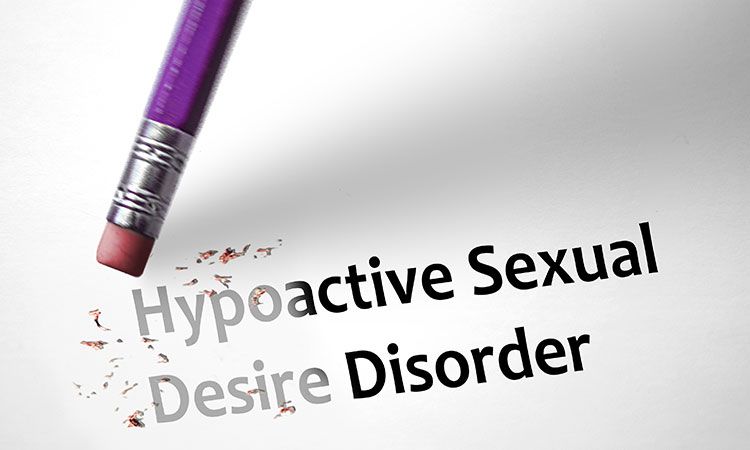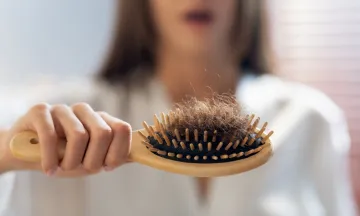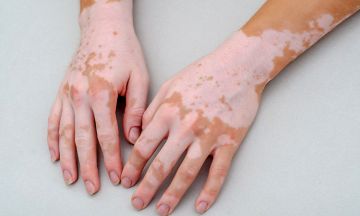Is low sexual desire among women a medical condition?
Did you know that low sexual desire among women is a medical condition? Well, you should know that it might be hypoactive sexual desire disorder is the culprit behind low sexual desire among women. Read on to know more.
Quick facts
- Low sexual desire is seen in one-third of adult women.
- Almost one out of five couples dealing with sexual issues avoids sex entirely.
- Around 10 to 20% of women have symptoms related to the discomfort that include vaginal dryness, itching and pain.
- Almost 46% of women experience low sexual desire.
- Nearly 85% of women aged 30 to 50 years think low sexual desire hurts the level of intimacy in their romantic relationships.
- Nearly half of premenopausal women aged 30 to 50 years say that they have experienced low sexual desire at some point in their lives.
- Only 14% are aware that low sexual desire is a medical condition.
Causes of hypoactive sexual desire disorder
Emotional reasons can be one of the causes of low sexual desire. These include the following.
- Abuse
- Anxiety or fear or worries
- Harsh sexual experience
- Fear of intimacy
- Fear to lose control
- Fear of pain
- Negative self-image
- Fear of pregnancy
- Fear of sexually transmitted infections
- Stress
Social factors can be another cause of low sexual desire. These include the following.
- Cultural or spiritual background
- Relationship issues
- Family setup living as a joint family
- Lack of space
- Fatigue from caring for young children and old parents
- Too much alcohol or excessive smoking might also cause a lack of sexual desire
Diseases can be yet another cause of low sexual desire. These include the following.
- Atrophic vaginitis
- Reduced vaginal lubrication
- Hormonal issues
- Chronic illnesses such as blood pressure and diabetes
- Pelvic surgery
- Depression
- Poor health
Symptoms of hypoactive sexual desire disorder
While it’s healthy for sexual desire to fluctuate, a woman with hypoactive sexual desire disorder will usually experience a lack of sexual desire for six months or more. If changes in sexual desire are so extreme that it’s affected your relationships or self-esteem, it could be hypoactive sexual desire disorder.
The most common symptoms of hypoactive sexual desire disorder are as follows.
- Little to no interest in sexual activity
- Few to no sexual thoughts or fantasies
- Disinterest in initiating sex
- Difficulty getting pleasure from sex
- Lack of pleasurable sensations when the genitals are stimulated
Treatment for hypoactive sexual desire disorder
The good news is that female sexual dysfunction is treatable. And with homeopathy treatment, most women have shown significant improvement in their sexual health. Homeopathy offers a holistic approach which treats at the level of the body as well as the mind, which is chiefly vital for sexual dysfunction patients. Homeopathy treatment has shown good results for lack of libido and inability to get aroused, especially because the cause is psychological in most of the women. It also helps immensely in cases of painful intercourse.
Read More: Concerned about your sexual health? Homeopathy can help.
Persistent anxiety about treatment results can also be interference for good treatment response. Quite often, many who seek treatment have hit a rough patch in their personal lives and relationships due to their problem and have lost patience to stick to the treatment. Counseling of the patient’s partner is also significant along with the patient in order to help to attain an optimistic treatment response. It is in the paramount interest of the patients that they choose early treatment for their sexual troubles which can offer effective results and stop any further development of the condition.
At Dr Batra’s®, they understand the physical as well as the emotional symptoms of the lack of sexual desire in women. Their homeopathic doctors have treated thousands of female patients for the same. It is believed that the cure for low libido is more likely to be found in the mind than in the pill bottle. But still, you should know that homeopathic medicine can address this condition holistically.
Conclusion
It is a strong recommendation of experts to book an appointment with your homeopath and seek homeopathy treatment.


